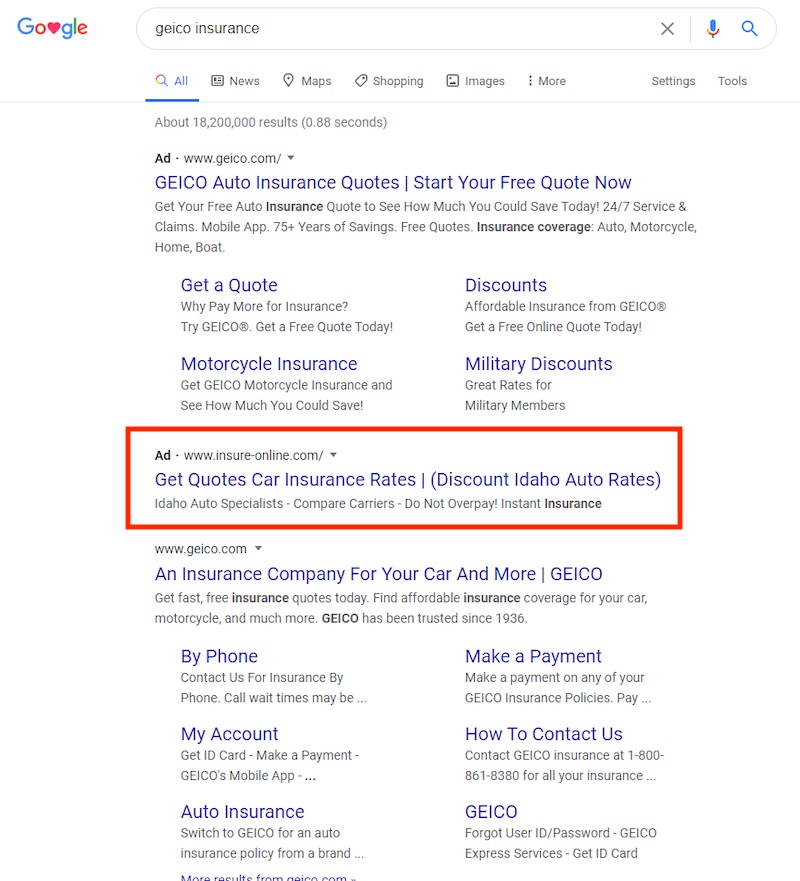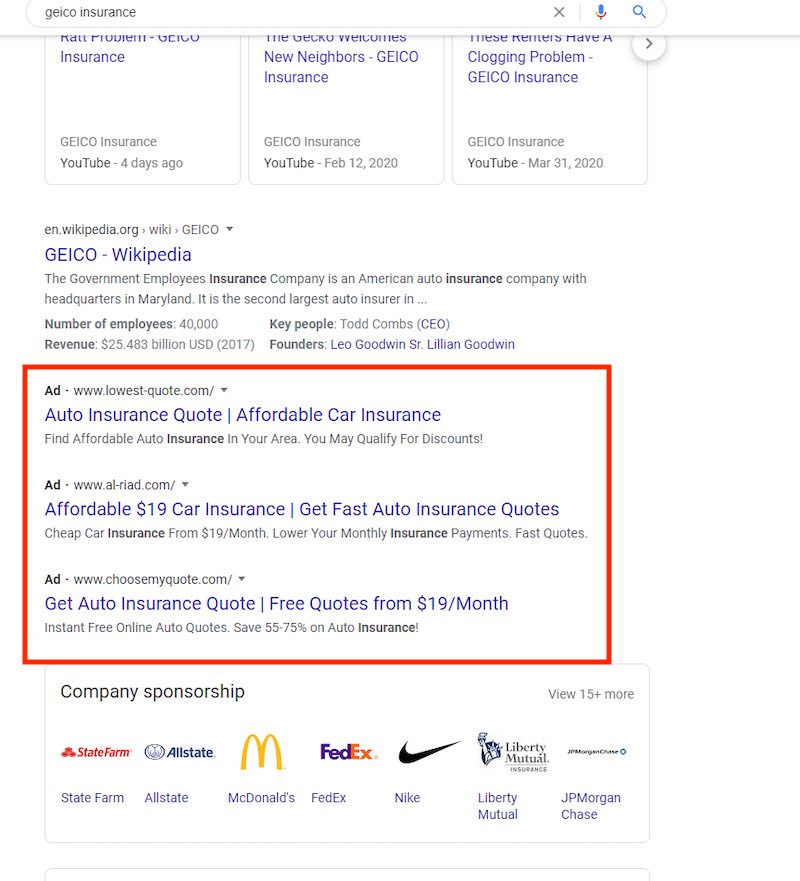A hotly debated topic in paid search marketing is bidding on competitors’ names and phrases. The considerations go beyond legalities. Whether to do it, and how, is what I’ll address in this post.
Legal Issues
The legal ramifications revolve around trademarks. A company that has been granted a trademark on its name and associated phrases has legal protections.
In Google Ads, there are two aspects to using a competitor’s name. First is the keyword. Google states, “We don’t investigate or restrict trademarks as keywords.” So nothing is preventing an advertiser from bidding on a competitor’s name or trademarked terms as keywords.
Second is the ad copy. Google is equally clear, prohibiting “Ads referring to the trademark for competitive purposes.”
Usually, Google Ads will automatically block a trademarked term in ad copy. If you do manage to skirt the algorithm, the competitive company holding the trademark will likely file a complaint and get your ads removed.
Hence, you can use a competitor’s name or trademark as a keyword, but not in ad copy.
Ethical Issues
Trademark policies are clear. Ethical issues are not.
While you may bid on a competitor’s name, remember that the competitor can also bid on yours. I’ve seen two common scenarios:
- One or more competitors are bidding on your name.
- No one is bidding on competitors’ names in your niche or geography.
Most advertisers reciprocate if a competitor is bidding on their name or phrases. An eye for an eye, so to speak.
The second scenario is less common. It poses a more difficult question. If you’re the first one to bid on competitor names, you’ll likely invite those competitors to bid on yours. Do you want that? Or would you prefer a peaceful co-existence? How aggressive are your competitors? Carefully weigh those questions against your business’s interests.
How to Do It
If you’ve decided to bid on a competitor’s name, here is how to have the biggest impact.
Adding the keyword(s) and setting the bid are basic. (For instruction, search the Google Ads help center).
However, bidding on a competitor’s trademarked name can be expensive. The competitor is likely bidding on its name, too, and should have a strong click-through rate. Google Ads will set the competitor’s expected CTR as high. Thus, your keyword will have a low rating on the expected CTR component of Quality Score.
The critical step is writing high-performing ad copy.
Since advertisers can’t use the trademarked term in the copy, the keyword relevance component of Quality Score will also be low. That’s two-thirds of the Quality Score with a poor rating. The result is a much higher cost per click than the trademark owner.
But you can still have effective ad copy. Let’s use a search for “Geico insurance.” On the screenshot below, the ad at the number two position, from Insure-online.com, attempts to connect to Idaho, my state. Otherwise, it’s a generic variation.

The ad from Insure-online.com attempts to connect to Idaho, the author’s state.
The ads at the bottom of the search results aren’t much better. These lower ads don’t target my state, which is a missed opportunity. Their pitch is low cost.

The ads at the bottom of the search results focus on low cost.
Searcher’s Intent
In the example above, the searcher is looking for Geico, the insurance company. We don’t know the type of insurance, such as auto, homeowners, or renters. But we know the searcher is familiar with Geico and wants Google to specify the appropriate web page. As a competitor to Geico, we could turn that to our advantage.
Imagine that the number two ad stated, “Get Better Insurance” in Headline 1. Our searcher wants Geico. But “Get Better Insurance” could cause him to reconsider — for better a better policy or lower rates.
You didn’t mention Geico by name. You didn’t have to. The “Geico” keyword tells you the searcher is looking for that company. Your ad copy states that there’s something better. That introduces doubt and FOMO — fear of missing out.
Pair “Get Better Insurance” with a compelling benefit in Headline 2 to pull clicks away from Geico. Then, your landing page will help win that searcher by using comparative terms such as “better” or “bigger” or “superior.”
In short, bidding on competitors’ names usually takes aggressive pricing and compelling ad copy. Do it right, and you’ll swipe conversions at the last second.
April 20, 2020 at 10:38AM
via https//www.brucedayne.com/
Robert Brady, Khareem Sudlow
